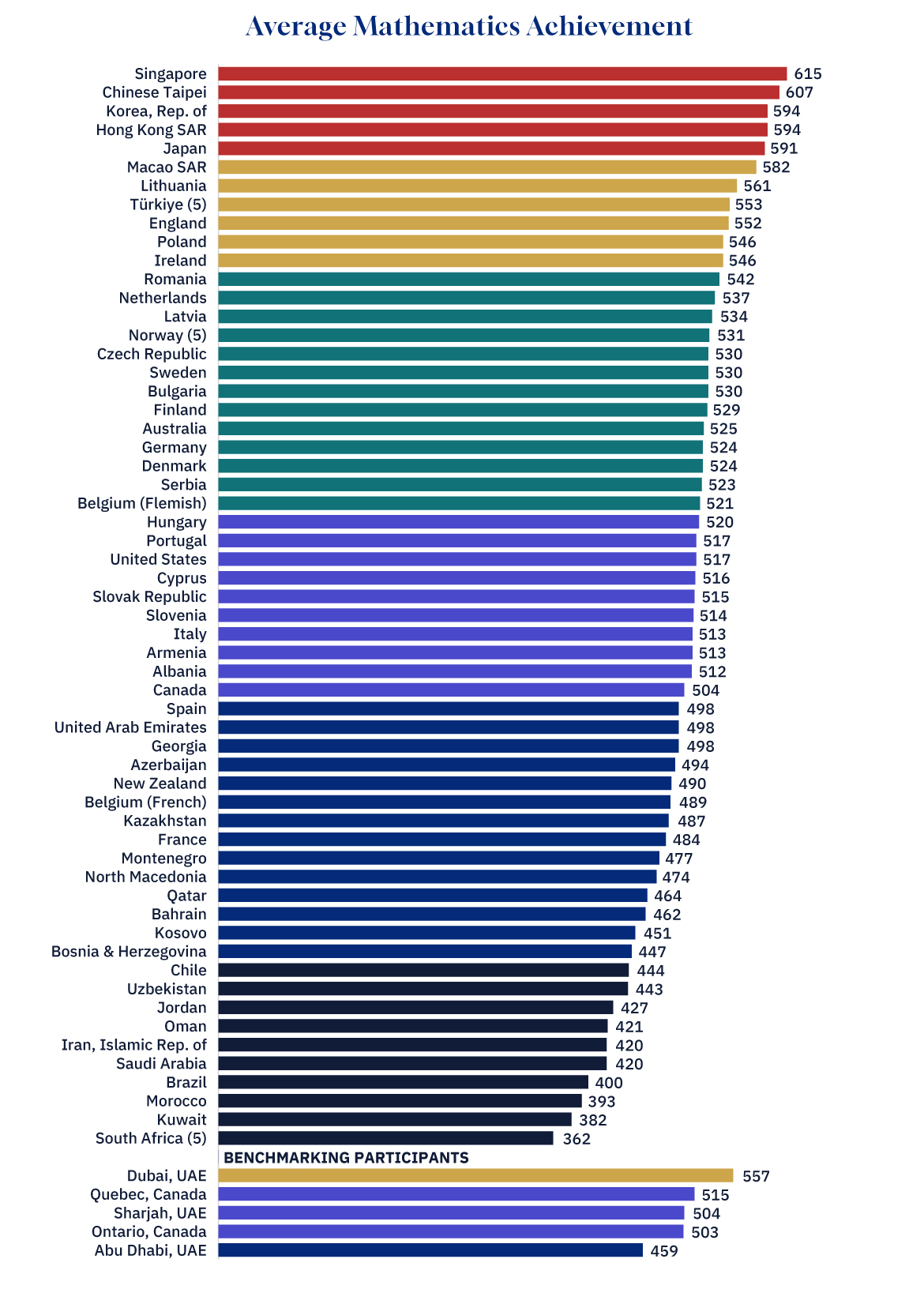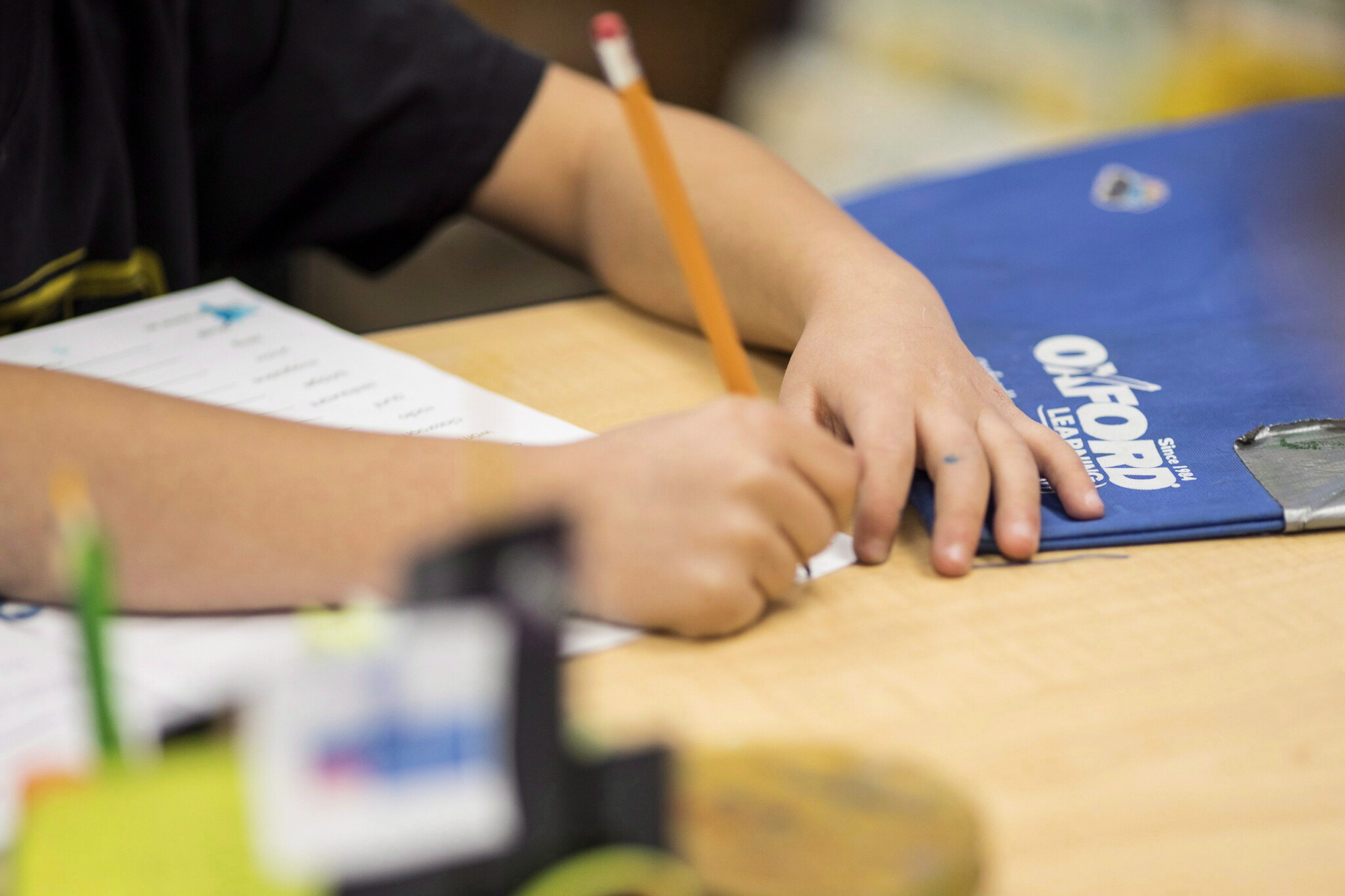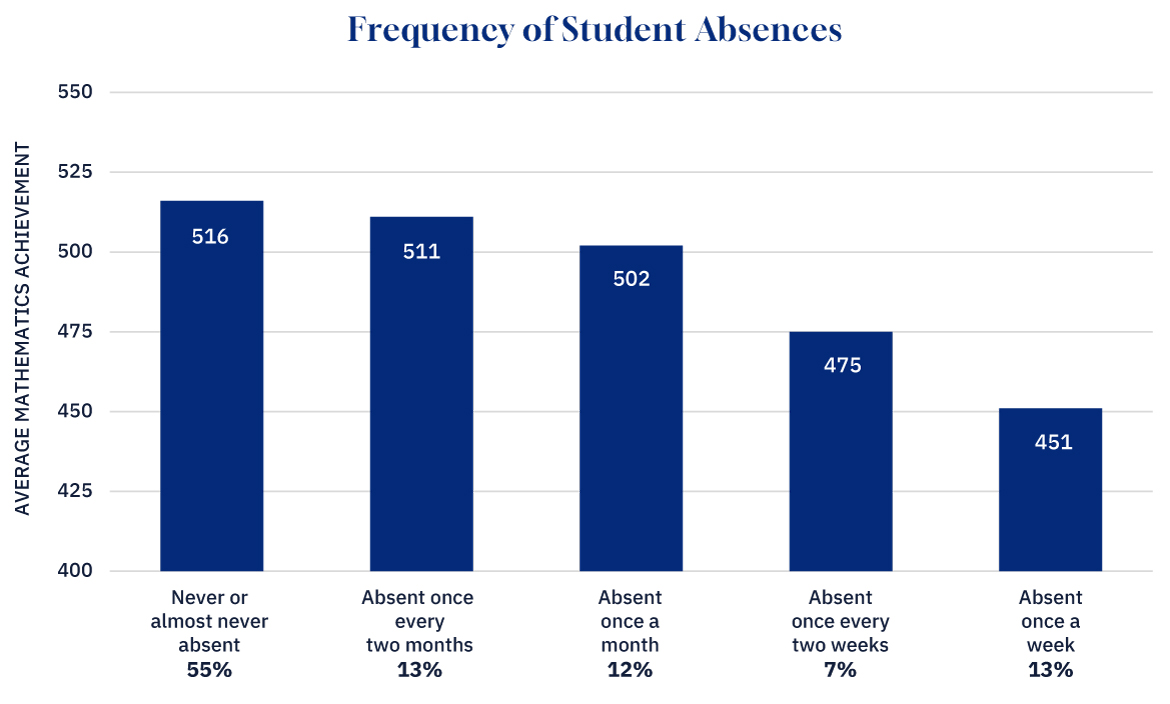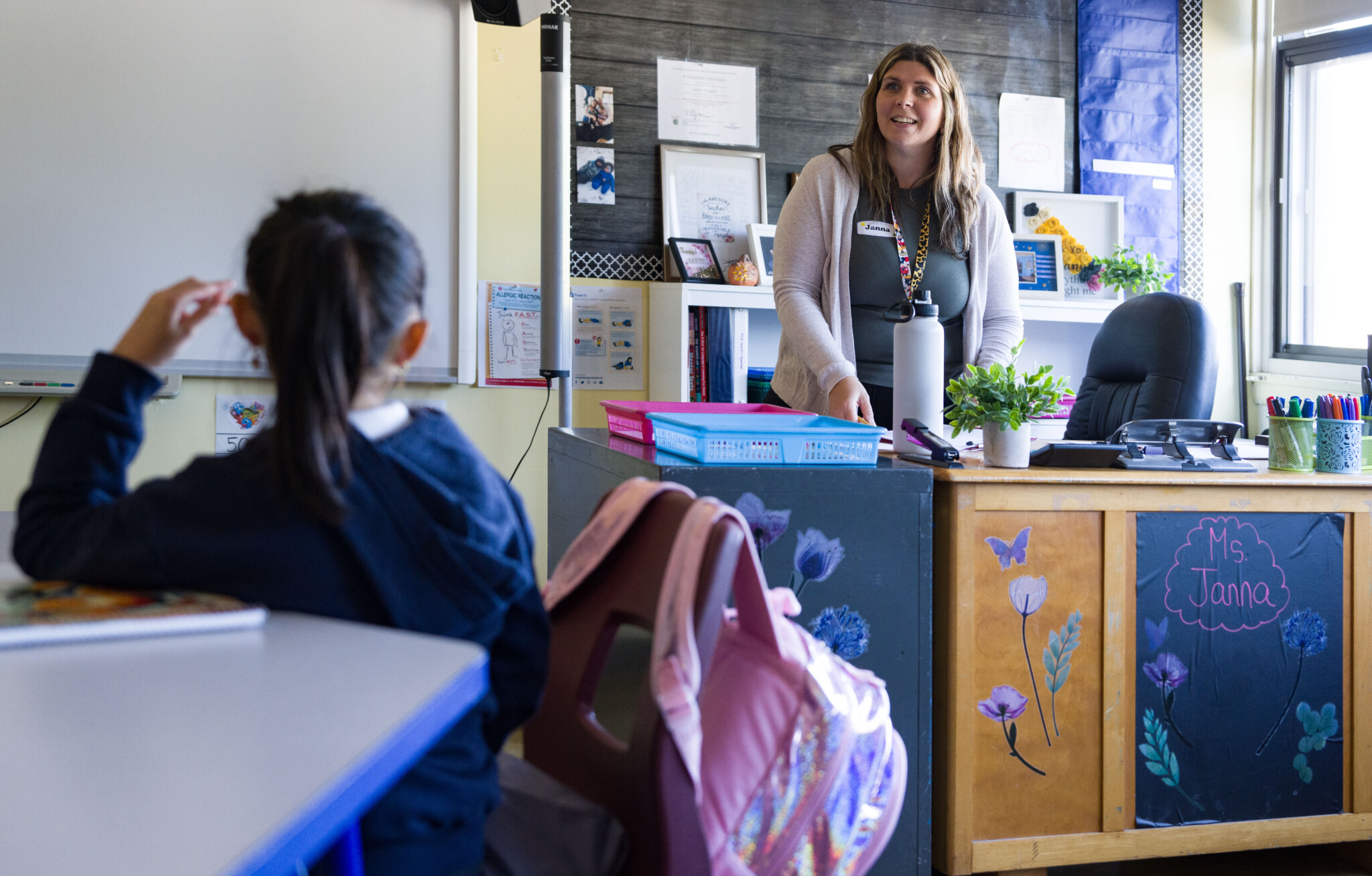For a country that once prided itself on being a “world-class” superpower in education, the latest math scores from Canadian students on an International Education Association (IEA) test must have come as a total shock. Tellingly, our national education agency, the Council of Ministers of Education Canada (CMEC), and all provincial ministries of education responded with deafening silence.
Late last year, Canada’s grade four students plunged in math scores to 32nd out of 64 countries who took the best-known international benchmark test in mathematics and science (a test conducted every four years). For the first time over the past 25 years, Canadian students ranked worse than those in the United States (ranked 27th), and those in Ontario fell below the country’s mean score.

Graphic credit: Janice Nelson.
Post-pandemic plunge: A Canadian “Sputnik Moment”
Nearly 15 years ago, in December 2010, it was deemed an “education crisis” when China surpassed all other nations on the 2009 Programme of International Student Assessment (PISA) test and U.S. students ranked 25 in the world in mathematics, reading, and science. It was likened then to the “Sputnik Moment” back in October 1957, when a wave of panic swept the U.S. over the earth-shaking news that the Soviet Union had launched the Sputnik 1 satellite and was ahead in the race for technological leadership.
Coming out of the global pandemic, Canadian students were expected to pay a price for the frequency and duration of school shutdowns, ranging from 11 weeks (B.C.) to 26 weeks (Ontario), one of the longest disruptions in the developed world. Between 2019 and 2023, Canadian grade four students not only lost ground but did comparatively worse than those of many nations, most notably Lithuania, England, Turkey, and Australia. To make matters worse, our Grade 8 students did not even write a test where American student results dropped more steeply and only three countries improved their standings.The results released December 4 from the Trends in International Mathematics and Science Study (TIMSS) assessment come from more than 650,000 fourth and eighth graders in 64 countries who took the tests in 2023. Managed by the Boston College Faculty of Education in the U.S., the test has been administered every four years since 1995. Because the assessment is designed by university subject specialists, it’s widely viewed as a reliable measure to monitor how many students have foundational math and science skills.
The Asian advantage
Five Asian states topped the Grade 4 math rankings on TIMSS 2023 by a considerable margin: Singapore, Chinese Taipei, South Korea, Hong Kong, and Japan, with scores ranging from 615 (Singapore) to 591 (Japan). Rounding out the top ten were Lithuania (561), Turkey (553), England (552), Poland (546) and Ireland (546). Of those states, the most improved from 2019 to 2023 were Poland (+26), Lithuania (+19), and Chinese Taipei (+8). For comparison purposes, the U.S. (24) dropped from 535 to 517, a loss of some 18 points.
Student scores for Canadians in mathematics since 2010 have plateaued and flattened, hovering above 500, but losing ground in relation to peer nations. A score of 550 or better on TIMSS indicates “a high benchmark, in which students can use concepts in extended contexts.” From 2019 to 2023, Canada has dropped from 512 (21st) to 504 (34th), and without Quebec (515) our results would be even worse.

A Student works at an Oxford Learning program in Toronto, December 7, 2017. Chris Young/The Canadian Press.
The gender gap and student absenteeism
The country report for Canada was not among those released in the first wave so it is impossible, so far, to bore down more deeply into our student results. General trends, however, are likely to be repeated here in Canada, particularly with regard to relative performance levels by socioeconomic status and the gender gap. The large majority of students tend to score in the median range and less than one in three meet or exceed the high benchmark score.
The 2023 tests saw a growing gender gap in favor of boys across many countries, especially in fourth-grade math. Gender gaps that were prominent when TIMSS was first administered in 1995 had narrowed over time, but seem to have returned. “The gender gap is a matter of concern,” Dirk Hastedt, executive director of IEA told Chalkbeat, a U.S. education magazine. “It’s clearly something that needs to be considered and monitored very, very carefully.”
Student absenteeism has gotten far worse since the pandemic disruption. The TIMSS surveys found that on average one in 10 students worldwide miss school at least once a week and one in five miss school at least once every two weeks. That is a serious post-pandemic problem in Canada’s schools from province to province where rates of absenteeism doubled from 2020 to 2023 and have not fully recovered. The correlation is clear, particularly in early elementary mathematics: students who rarely missed school scored the highest, and students who missed school often scored the lowest.

Graphic credit: Janice Nelson.
Reading into the results
The first TIMSS results since the COVID pandemic crisis disrupted education around the world do suggest that students fared differently from country to country. A few countries, such as Poland, Lithuania, Bulgaria, Serbia, Armenia, Qatar, and Australia actually improved their scores, possibly due to their educational management and the severity of the pandemic affecting their countries.
School closures were definitely a factor in the decline in the Grade 4 scores of Canadian students in mathematics. In the case of Grade 8, the irregular pattern of in-person schooling during COVID from 2020 to 2022 impacted the level of student preparedness and, in all likelihood, explains why we are listed as a “dropout nation” on that test.
The latest American student results attracted immediate attention inside and outside the school system. On the heels of disappointing national test results, Peggy Carr, commissioner of the U.S. National Center for Education Statistics, described the latest scores as “devastating” given that some countries weathered the pandemic in better shape and are “leapfrogging over us.” So far, here in Canada, the response is simply “say nothing and hope no one notices.”









